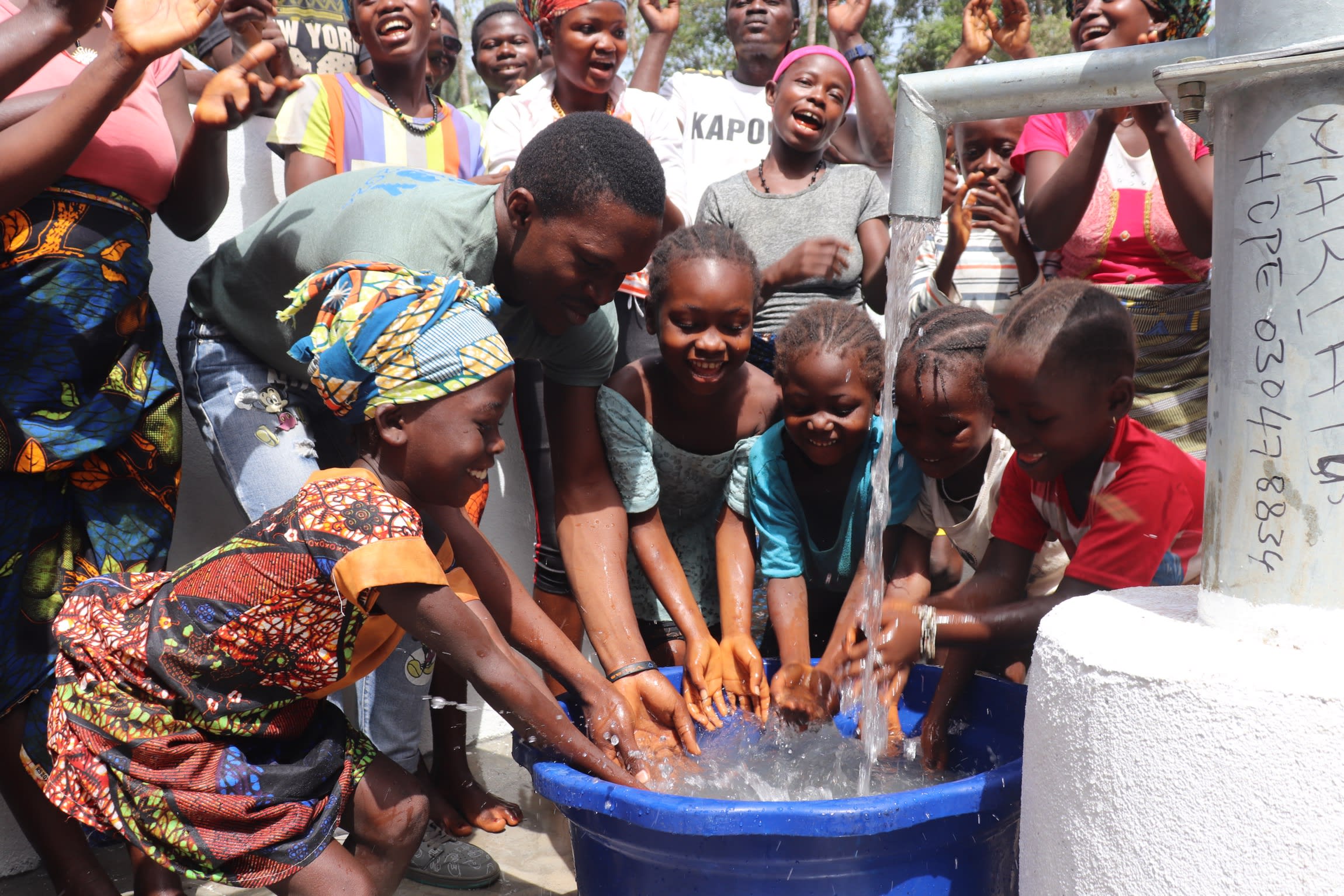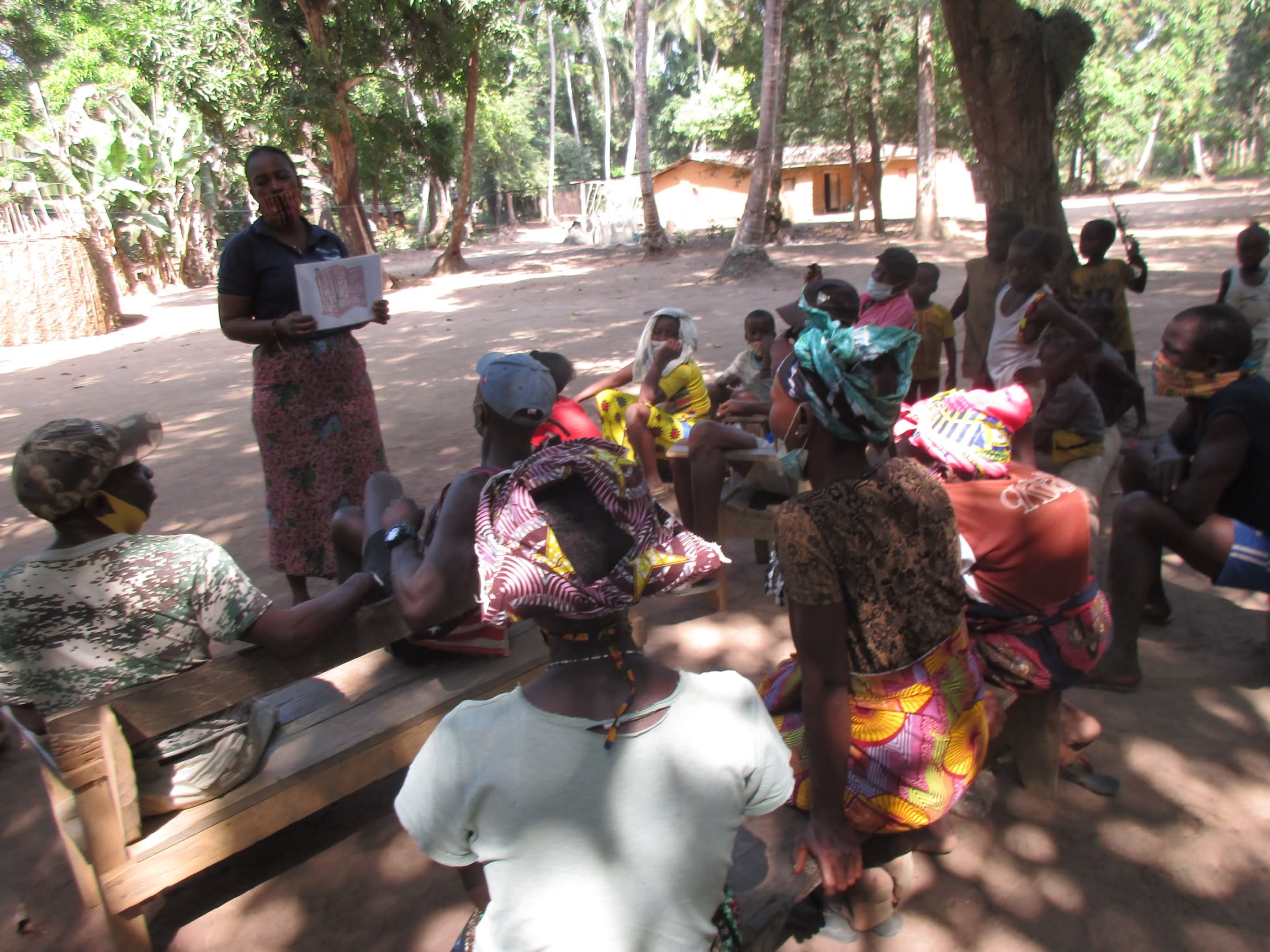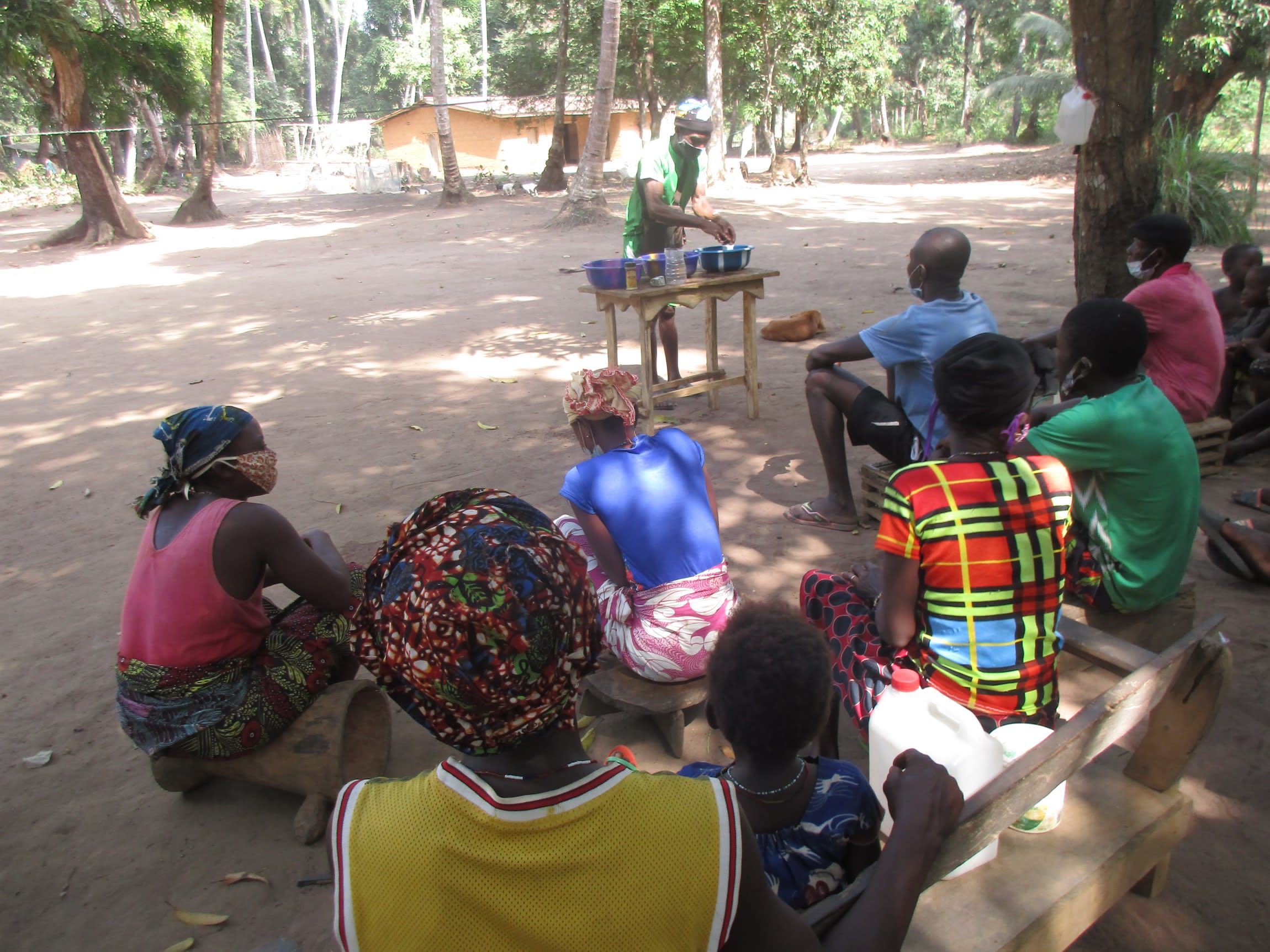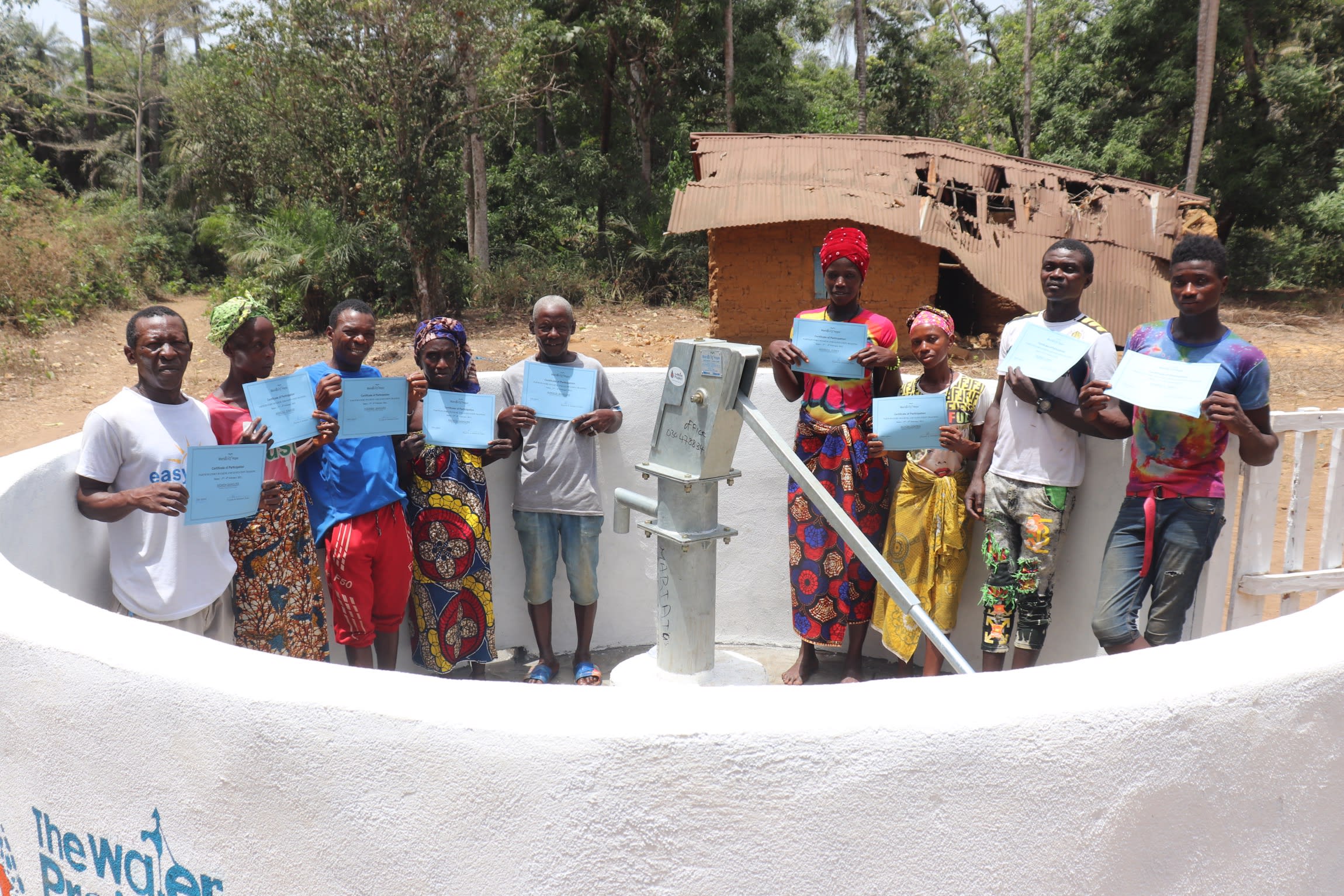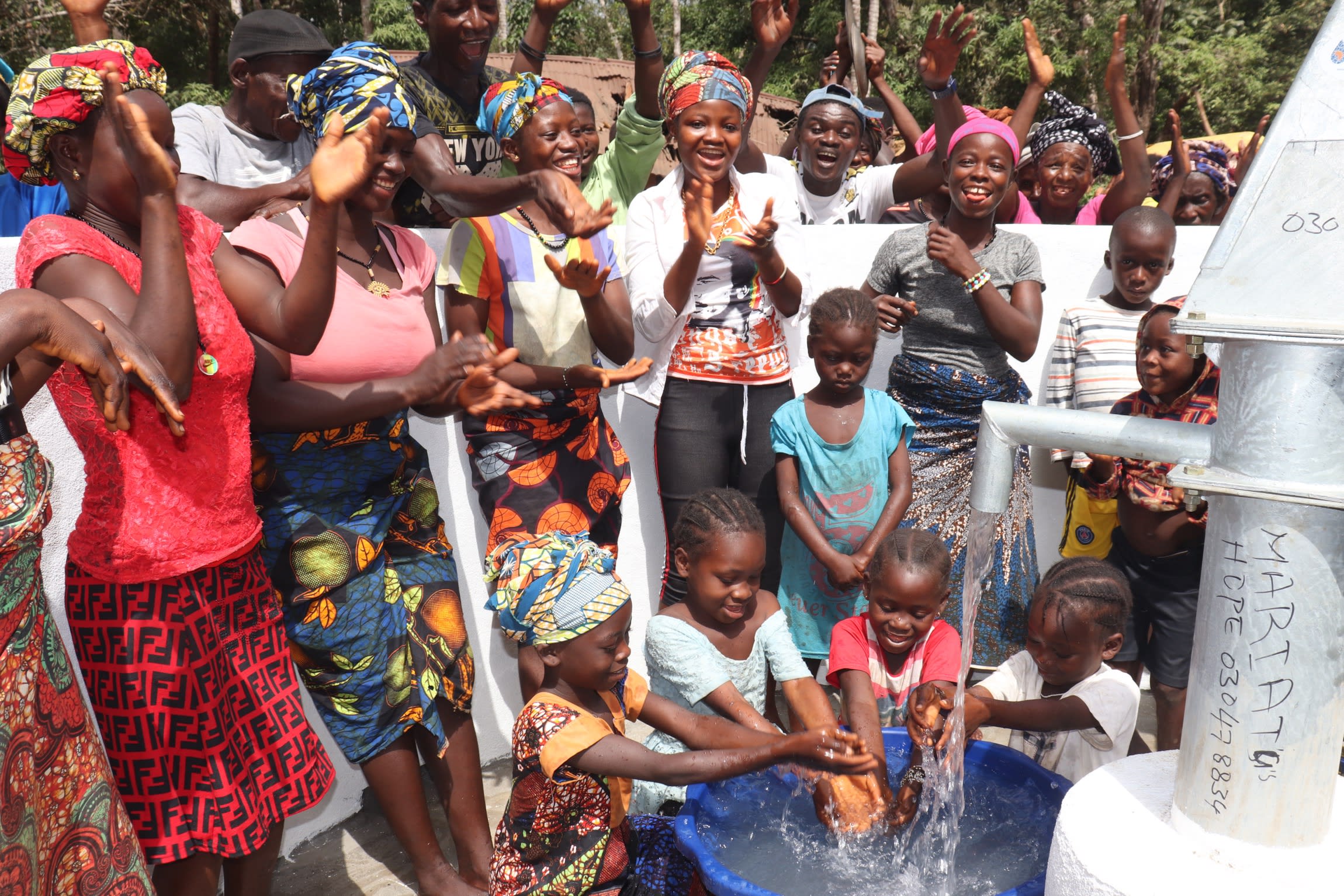The 69 community members in Tardi can only rely on the local swamp for water because there is no other water source in their village.
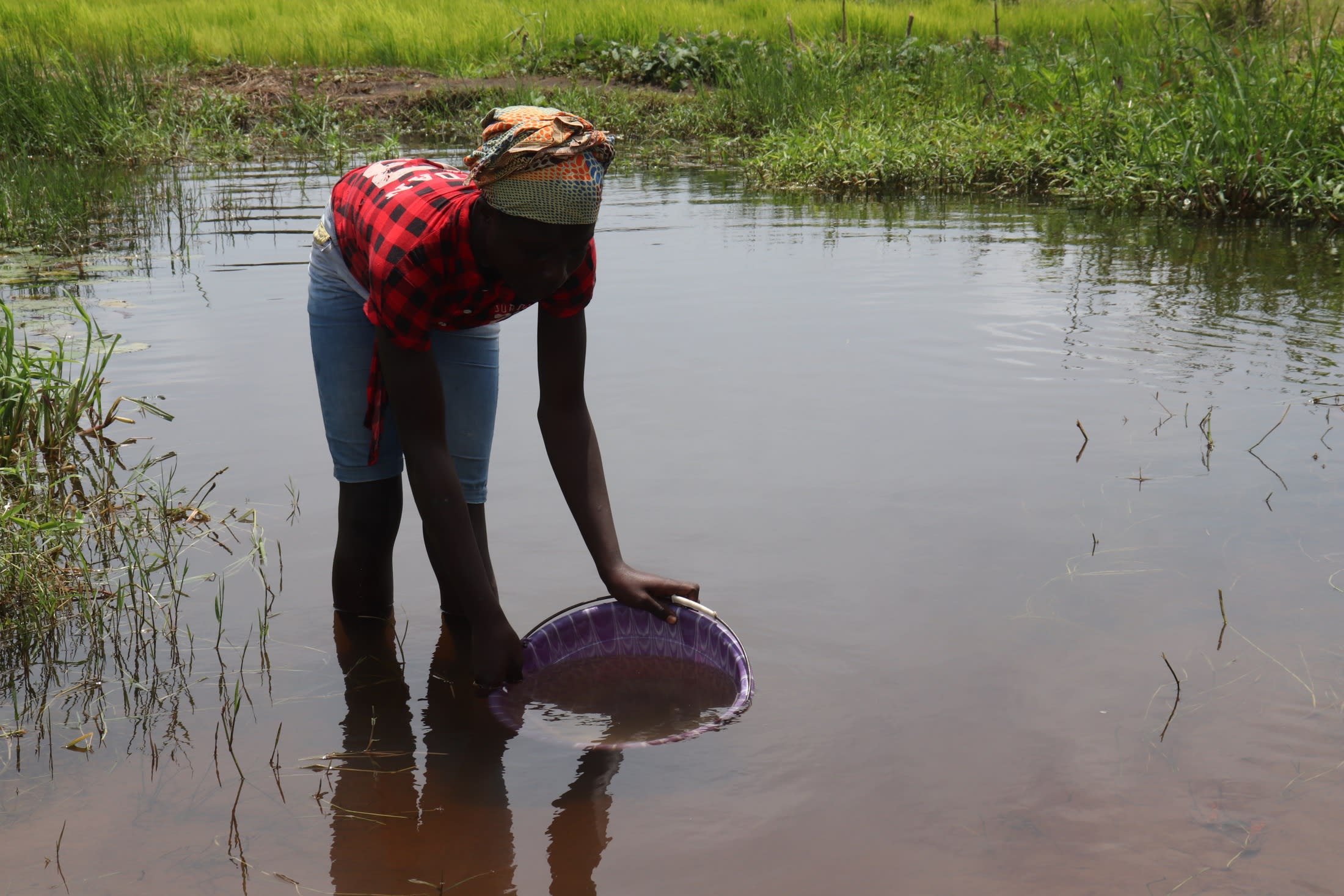
The water in the swamp water is yellow. There are frogs in the water and green leaves float on top. Children swim and villagers do laundry in the same water they collect to drink. Drinking contaminated water means community members and those they love suffer from water-related diseases as a result. Sadly, a recent severe cholera outbreak led to the loss of several relatives and immediate family in the community. Every day, individuals struggle to stay healthy, which impacts how much energy they can commit to building successful lives.
People in Tardi also must deal with the disturbing problem of being stalked by a pack of wild dogs as they move about the community and travel through the forest to reach the swamp to collect water. It is not just a nuisance, it is also dangerous, causing many injuries and broken water buckets as people run away to escape.
Mayelie Bangura, 35, a local petty trader, said, "There are stray dogs all over the forest chasing people and causing damage on properties. This has made it hard for me to fetch water to prepare my business on time."
Mayelie also shared how being the only person in her household to collect water weighs on her as she attempts to provide an income for her family. "It is always hard in this village to fetch water from the swamp to prepare my business. My children living with me are not strong enough, for now, to help me fetch water. I must do it alone every morning to prepare my business."
Because of the threat of wild animals, students are unable to fetch water after school in the afternoon since they need to wait for their parents to arrive home from the family farm. "I fetch water from the swamp every day before and after school from Menika village (2 miles away). It is not easy to walk [a] far distance to attend school and return home after school to fetch water. This has been so hard on me every day because I make more than four trips for water every day and do other domestic works as well," said Mahawa T., age 15.
She continued, "I exhaust more of my time and energy on domestic activities including fetching water than reading my [school] reading at home."
There is great fertile land for farming and lots of potential in Tardi. More people would move to this community, but people are reluctant because there is no safe water source.
What we can do:
New Well
Where we will be drilling is centrally located and will relieve many people of the long journey to fetch water and the challenge of accessing clean water.
Our team will drive over the LS200 mud rotary drill rig and set up camp for a couple of nights. Once the well is drilled to a sufficient water column, it will be cased, developed, and then tested. If these tests are positive, our mechanics will install a new India Mark II pump.
By drilling this borehole, Tardi and the surrounding community will be provided with plenty of accessible, clean drinking water.
Training
There will be hygiene and sanitation training sessions offered for three days in a row.
Community members will learn how to make a hands-free handwashing station called the "tippy-tap." We will use these tippy taps for handwashing demonstrations and will also teach about other tools like dish racks and the importance of properly penning in animals. We will highlight the need to keep restrooms clean, among many other topics.
This training will also strengthen a water user committee that will manage and maintain this new well. They will enforce proper behavior and report to us whenever they need our help in solving a serious problem, like a pump breakdown.

 Borehole Well and Hand Pump
Borehole Well and Hand Pump
 Rehabilitation Project
Rehabilitation Project










